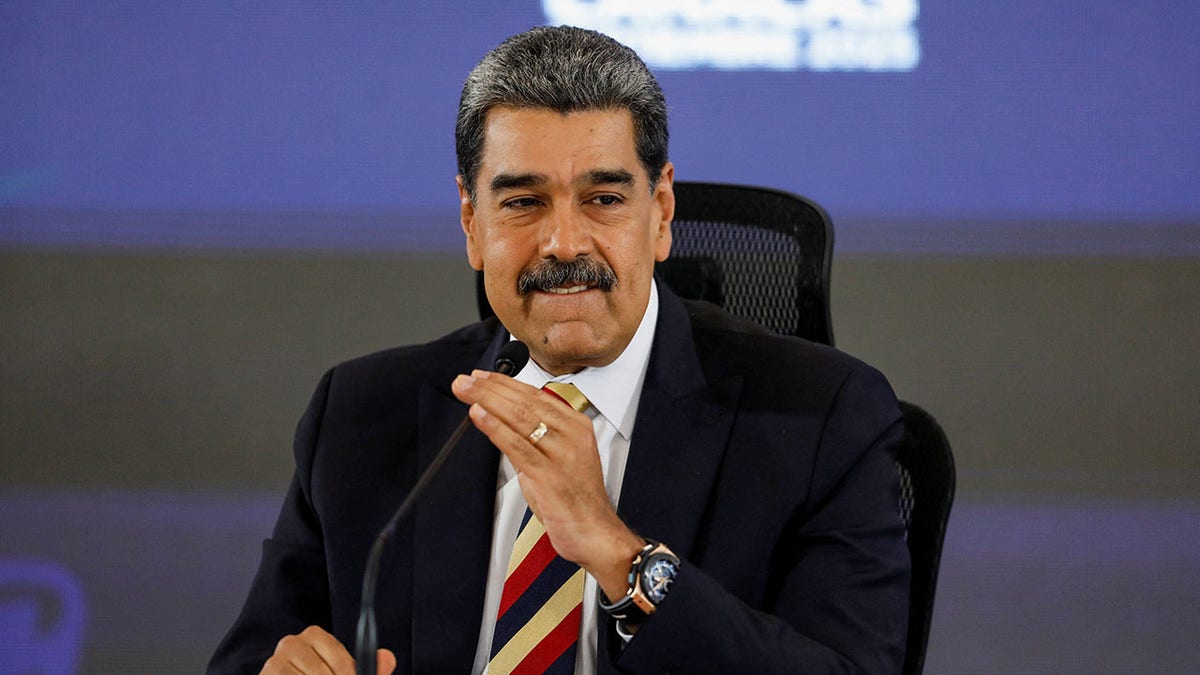Maduro Accuses U.S. of Seeking 'Regime Change' Amid Caribbean Naval Buildup
Venezuelan president calls U.S. deployment an intervention as Washington says ships target drug cartels; China condemns the build-up
Venezuelan President Nicolás Maduro on Monday accused the United States of seeking a regime change through a military threat after Washington authorized a naval deployment in the Southern Caribbean and nearby waters.
Maduro, speaking to journalists, officials and uniformed military brass in Caracas, said the buildup was an intervention in Venezuela's internal affairs and echoed earlier comments by his government's representative at the United Nations. "They are seeking a regime change through military threat," he said, adding that "Venezuela is confronting the biggest threat that has been seen on our continent."

U.S. officials have said the deployment, authorized by President Donald Trump, aims to disrupt activity by Latin American drug cartels and forms part of a broader border security policy. U.S. statements released with the deployment stressed the mission's counter-narcotics focus and did not indicate any intent to alter Venezuela's government.
China criticized the U.S. military presence off Venezuela's coast as foreign interference in regional affairs, according to statements from Beijing, signalling growing international concern about the standoff. Maduro's remarks follow a week of heightened rhetoric at the United Nations by Caracas' diplomats, who have warned of external threats to Venezuelan sovereignty.
The naval movement involves multiple warships operating in the Southern Caribbean and surrounding waters, according to U.S. briefings that accompanied the authorization. Venezuelan officials have framed the presence of foreign warships near their territorial waters as escalatory, and the government has mobilized military personnel for public-facing inspections and briefings.
The confrontation adds to longstanding tensions between Washington and Caracas, which have diverged sharply on issues including governance in Venezuela and U.S. sanctions. Maduro's government has repeatedly accused the United States of seeking to undermine his administration, while U.S. authorities have focused public messaging on security concerns tied to drug trafficking routes that traverse Caribbean waters.
Regional governments and international organizations have called for restraint. Diplomatic responses have varied, with some countries urging de-escalation and others reiterating support for international law and national sovereignty. Analysts say the episode could complicate efforts to address transnational crime while raising the diplomatic stakes between major powers with interests in the hemisphere.
Both sides have so far stopped short of direct military confrontation. U.S. officials say operations will continue to target illicit trafficking, and Caracas has pledged to defend its territorial integrity through diplomatic and military channels.
Further developments are likely to hinge on diplomatic exchanges in the coming days, including statements from regional bodies and any additional military movements announced by either side.